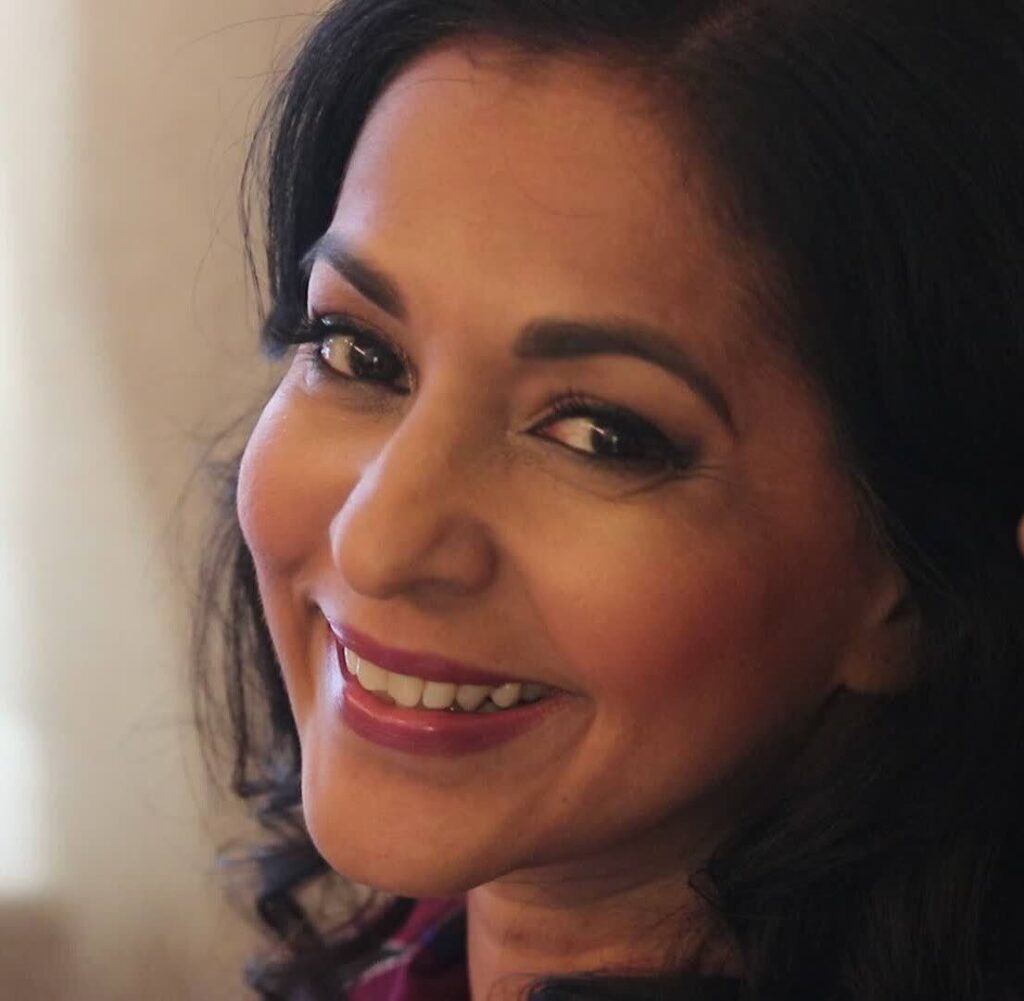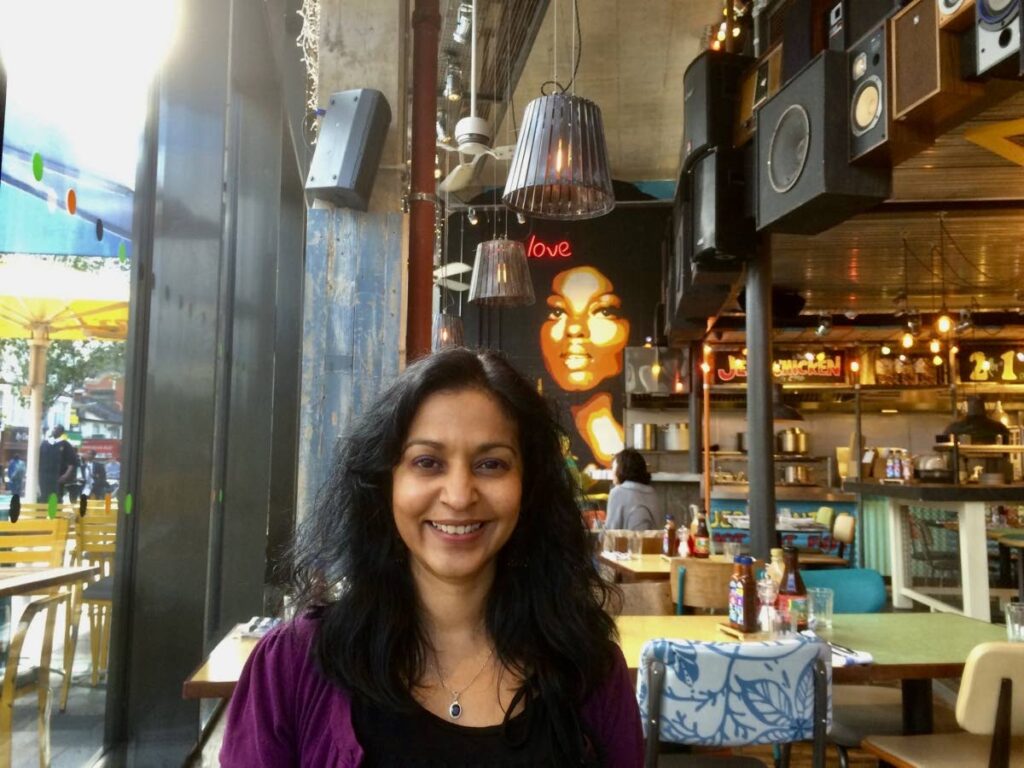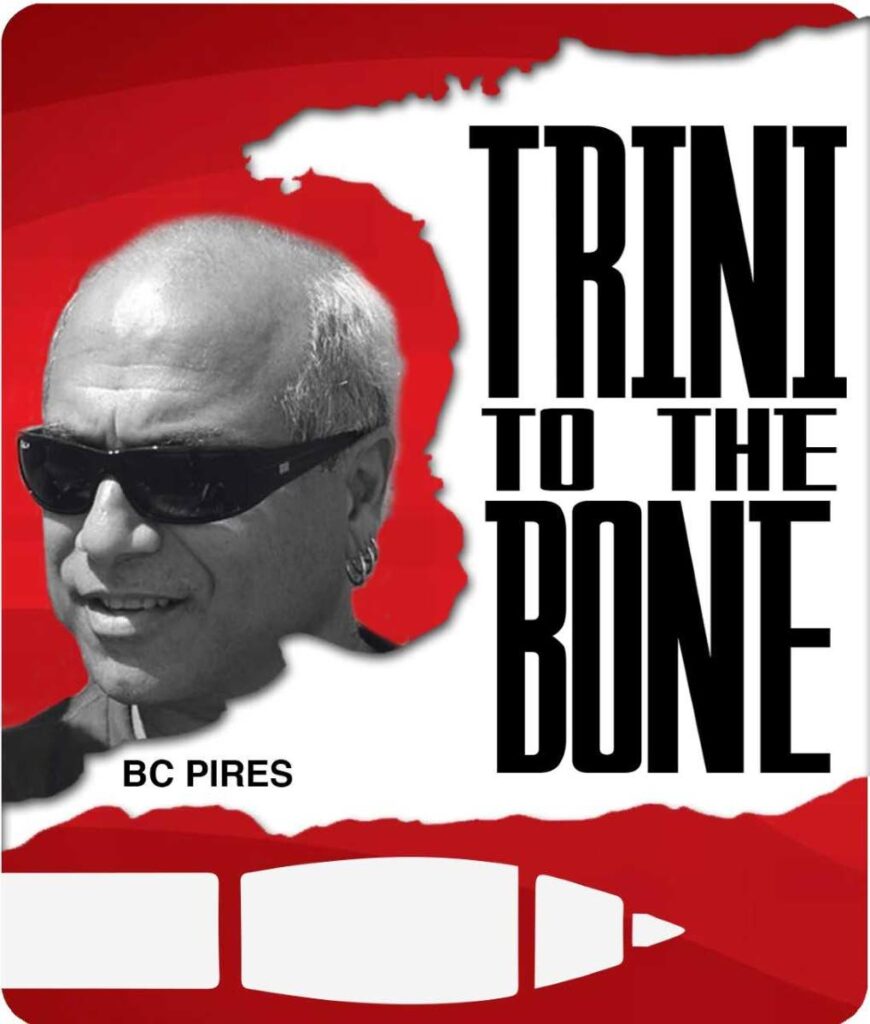Round the Savannah still

AS TOLD TO BC PIRES
My name is Laila Haidarali and all I’ve ever wanted to be is a writer.
I’m a diasporic Trini university professor. I teach African American history at Queen's University.
I’m also contributing to the field, writing and researching. I’m beginning to draw lines with the Caribbean.
I come from Petit Valley, but my first six years, spent round the Savannah, really informed my childhood and life.
We lived right next to Casuals Club. My uncle lived behind us and my grandparents lived in between. So my family formation was really around Queen’s Park West. My dad’s business was also round the Savannah. So much of my life was!
I met my British husband, John Haynes, when I was also a lecturer at Essex University in England. He lectures in film and history.
It’s one of the happiest parts of my story. He’s amazing and he’s my support. We haven’t been blessed with children.
The home we left to go to Canada in 1988 was in Petit Valley, Ben Ali Drive. Which was actually named after my uncle. Growing up was always very much a family affair.
I grew up in an Islamic household. My mum was Catholic, so I was exposed to both religions, but Islam won out.
I don’t practise, though.
I’m spiritual. I believe in a higher power, but I don’t believe in any institutionalised religion.
I would totally accept BC Pires’ proposition that all religions were devised by men to keep women down.
My first school was Auntie Brenda’s, but school-school was Holy Name Prep. And then Holy Name Convent.
I have three sisters and we all went (along) the same path.
I never faced different treatment being Muslim at Holy Name. To be honest, I’ve always been different and I’ve embraced that now.
People had problems pronouncing my name, which still happens.
I was obviously excluded from things like confirmation classes. I was often with, like, the kid of French atheist diplomats, the Indian girl whose parents were at the Indian High Commission. That sense of always being other, even though I was at home.
But on the whole, I felt a sense of acceptance, even though I was different.
I started my first year at UWI St Augustine in September, but we moved to Canada at the end of March, so I never finished it.
Those six or seven months were fantastic, particularly in the Caribbean setting I knew I was leaving soon.
I remember the classrooms were packed. I took philosophy, history and literature.
Unfortunately I never took a class with Brinsley Samaroo, who recently passed.
I’m thankful to say I never encountered African/Indian racism at UWI.
My father passed very unexpectedly when I was 14. He had a massive, sudden heart attack at age 46 and died at home – I’ve outlived my dad – and it just changed everything.

My mum was left with four girls. Five years after he died, we moved to Canada for family reunification. My mum’s family was already there.
My two sisters preceding me had done grade 13 in Canada. That was to happen to me next, but my father passed.
It was a long time ago, but it’s still painful to think of my dad’s passing. It’s a loss that has been endured for 40 years rather than (accepted).
I got a letter from a girl in my class at Holy Name, who wasn’t my friend. Her grandfather had passed. It bonded us. When we went back to school in September, everybody was taking about confirmation and boys – and I was so lost. But I (now) had that friend, Candyce.
I really didn’t want to leave Trinidad. I was having a great time.But to raise four girls by herself, my mother wanted to be closer to her family.
I was 19, so Canada was exciting. I went straight off to University of Western Ontario, a very posh country club university in another town.
I found the first three years kinda difficult. I teach at university now and I see what being that age of 19, 20, 21, brings. You’re going through so much.
(University) became challenging enough that I took three years off. In my third year, I was really not happy and left university.
I was going to write, I was going to become a poet.
I worked, I made money, I travelled, I wrote poetry. I applied for an Arts Council grant. I am a published poet in journals, periodicals and magazines and my dream is to publish a collection.
I went back to university after three years and did my masters and PhD in history.
(When I’d been at university before) there was no option to take African or Caribbean history. They were on the books, but there was nobody teaching it.
What spoke most to me was US history because, one, I knew it from A-Levels and, two, they were discussing race and gender most significantly.
In 1985, a book came out called Ain’t I a Woman?
US history always interested me because it was speaking about race, class and gender, the sort of complex intersections of identity.
I began to get some beginnings of answers. The apparatus, the questions being asked in US history by black women and scholars, really informed the path I ended up taking and where I am today. I guess I came to find myself, or find a way to articulate concerns and interests around race, gender, class and nationality. And most importantly, civil rights.
As much as I’m doing US history, I’m coming back home in some ways, to think of us: African diasporic women, women of colour and Caribbean women. And the work being done in beauty and fashion.
I look at African American models in the late 1940s and I’m finding they travelled to the Caribbean. And I’m trying to trace those movements. They’re using beauty and fashion as a leverage for civil rights. As a way to approach respectability.
If you think of Martin Luther King Junior and that very respectable image of the suit and tie, that’s a big part of the road to civil rights, which is very middle-class and bourge-y and very problematic. But it’s a step.
I don’t know if I get flak as an Indian woman teaching African American history.
I think I’m viewed differently by different groups.
My first answer is to say it’s very essentialising to say you can only study what you are. If that’s the case, there are many white men who couldn’t study other things. Or you’re limiting people as to what they can study.
I guess it’s not really flak but the questioning of my authenticity, the questioning of where you’re coming from and why aren’t you covering your own, why aren’t you doing Indian history.
It’s never really open, but I see it.
I do what I do because I love it, but even in my field, I’m an outsider.
History gives you a lens to see things in a less impassioned, less emotional way. And to understand why.
And if you understand why, you can begin to dismantle, deconstruct. Get to the root of issues.
A Trini is hospitable to the core. A Trini is creative. And a Trini is energy. Those are the three things I think of as “a Trini.”
Trinidad and Tobago is my home and my heart.
Read the full version of this feature on Friday evening at www.BCPires.com


Comments
"Round the Savannah still"